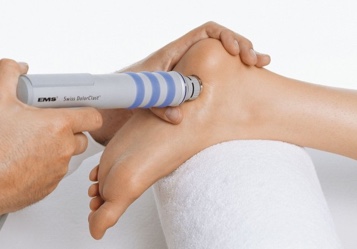
Understanding and Alleviating Heel Pain: A Podiatrist’s Guide to Heel Pain
Welcome to our podiatry blog, where we prioritise your foot health. Let’s talk about a common concern that many individuals face: heel pain. As a podiatrist, I encounter patients regularly who experience discomfort in their heels, and addressing this issue early is crucial for long-term foot health.
What Causes Heel Pain?
Heel pain can result from various factors, and understanding the underlying cause is essential for effective treatment. Here are some common reasons you might be experiencing heel pain:
– What is it? Inflammation of the plantar fascia, the tissue that connects the heel bone to the toes.
– Symptoms: Sharp pain in the heel, especially in the morning or after long periods of rest.
– Causes: Overuse, high-impact activities, improper footwear, or biomechanical issues.
– What are they? Bony growths on the underside of the heel bone.
– Symptoms: Pain in the heel, often described as a stabbing sensation.
– Causes: Prolonged plantar fasciitis, strain on the foot ligaments, or arthritis.
– What is it? Inflammation of the Achilles tendon, which connects the calf muscles to the heel bone.
– Symptoms: Pain at the back of the heel, swelling, and stiffness.
– Causes: Overuse, sudden increases in activity, or inadequate stretching.
– What is it? Inflammation of the bursa sac, a fluid-filled sac that cushions the heel bone.
– Symptoms: Swelling, tenderness, and pain, especially with pressure.
– Causes: Repetitive stress or trauma to the heel, poorly fitting shoes.
What You Can Do at Home:
- Rest: Give your feet a break. Avoid activities that exacerbate the pain.
- Ice: Apply ice to the affected heel for 15-20 minutes several times a day to reduce inflammation.
- Stretching Exercises: Perform gentle stretches for the Achilles tendon and plantar fascia to improve flexibility.
- Footwear: Wear supportive shoes with proper arch support. Avoid flat or unsupportive footwear.
When to Seek Professional Help:
If heel pain persists or worsens despite home remedies, it’s time to consult a podiatrist. Seek professional help if you experience:
– Intense pain, especially in the morning or during activity.
– Swelling, redness, or warmth around the heel.
– Difficulty walking or bearing weight on the affected foot.
Podiatrist’s Intervention:
- Accurate Diagnosis: A podiatrist will conduct a thorough examination to determine the exact cause of your heel pain. Sometimes we refer for imagery such as Ultrasound or X-rays.
- Custom Treatment Plan: Based on the diagnosis, a personalised treatment plan will be developed, which may include orthotics , physical therapy, or lifestyle modifications.
- Footwear Recommendations: Your podiatrist can guide you in selecting shoes that provide adequate support for your specific condition.
- Other Procedures : In some cases, procedures such as Shockwave Therapy is recommended and we do this in clinic at Happy Feet Podiatry.
Conclusion:
Heel pain is a common ailment that should not be ignored. Early intervention, coupled with proper self-care and the guidance of a podiatrist, can alleviate discomfort, and prevent the progression of foot conditions. Remember, your feet are the foundation of your body, and taking care of them is essential for overall well-being. If you’re experiencing persistent heel pain, don’t hesitate to reach out to us for expert evaluation and tailored solutions. Your feet deserve the best care, and we’re here to help you every step of the way. Visit our dedicated Heel Pain clinic website here Newcastle Heel Pain Clinic
